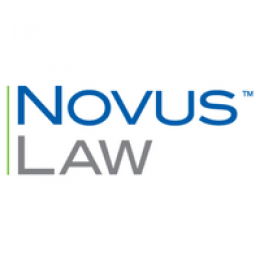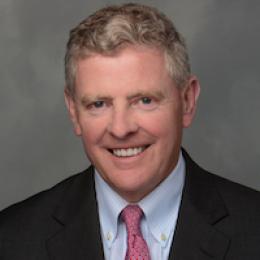
This article was originally published in the ACC Legal Ops Observer, a newsletter for members of the ACC Legal Operations section. ACC thanks the Novus Law LLC Client Solutions team for contributing this article and producing the newsletter.
At Liberty Mutual Insurance Group, one of the most effective and respected partnerships in the legal department is between its chief legal officer and a non-lawyer.
In fact, prior to joining the legal team last year, Kiran Mallavarapu had neither worked with a corporate legal department nor managed lawyers. However, as the engineer and operations expert tasked with realizing the innovative aspirations of Chief Legal Officer James (Jim) Kelleher, he recognized that his new boss and colleagues were on the path to implementing transformative change.
“When I came into the legal department it was very new to me, but within the first month, it was very clear that they were asking the right questions,” Mallavarapu says. “From a culture perspective, the legal department had the right talent and was thinking ahead. However, they were at a crossroads when it came to execution.”
One of the benefits of hiring a legal “outsider” was a fresh perspective to turn aspirations into action. “Kiran brought a frame of reference that was absent in the legal department,” Kelleher says. “We knew there were issues around communication, project management, process efficiency, and outside legal spend, but we lacked a structured approach to process mapping, tracking value, and problem-solving.”
“I asked Kiran to join the legal department a year ago to help take a broader approach,” Kelleher says. “To help me make sure that we’re maximizing our structure, promoting process improvements and efficiencies, and possessing better control over outside legal spend as well as over internal finances. It is truly evolving and I am hopeful of where it’s headed. There have been big advancements in the legal department operations group in the last twelve months.”
It should be noted, however, that Kelleher’s search for his operations executive was preceded by a significant enhancement to the structure of the legal department, driven by a need to ensure that Liberty Mutual’s lawyers and legal professionals — spread across 65 offices — better understood the business mechanisms of the nation’s fifth-largest property and casualty insurer.
When ready to begin the internal search for a head of operations, Kelleher desired someone who would capitalize on the larger organization’s culture to share group talent throughout the company and expose the legal team to other areas of operations. This would allow the in-house lawyers to better understand the business objectives of the global insurer and more effectively respond to the ebb and flow in demand for their services.
“This alignment structure was a decade in the making and driven by a need to make sure our lawyers really knew what was happening in the business units,” says Kelleher, who began his career at Liberty Mutual in 1983.
The operations team, Legal Strategic Services (LSS), was divided into three segments.
- External Counsel Services, which includes a legal audit and billing unit, and Legal Quality and Strategic Relations, which oversees outside counsel and supports the efficient consumption of legal services for customers.
- Core Services, which includes a Legal Reporting and Analytics group and a technology group. This segment also contains a team of data scientists who build predictive models and conduct research and analytics on a wide variety of issues. They also assist with data curation, knowledge and matter management, and key performance indicators. Core Services also include administrative and Internal Communications professionals, who handle tasks such as change management, events, and promoting the group’s pro bono work.
- The final grouping implemented with the addition of Mallavarapu was Enhancement Services. This functional category includes two broad competencies 1) continuous improvement and training; and 2) legal ideation and transformation. Liberty Mutual’s legal innovators focus on how legal services are going to be delivered both in-house and by outside counsel now and in the future while also maintaining practices in competitive intelligence and benchmarking, and injecting project management models found to be successful in other industries into the legal department.
While exciting, implementing new processes and technologies can also be challenging in an industry where skepticism and maintaining the status quo is the norm, even in a law department as progressive as Liberty Mutual’s.
Nevertheless, Kelleher, Mallavarapu, and other industry leaders firmly believe that lawyers — both in-house and outside counsel — are most valuable when performing the highest levels of strategic legal work, while other tasks are better, more efficiently and less expensively done by non-lawyer professionals, or by technology.
“We had lawyers and paralegals doing work with far too many steps in the process,” Kelleher says. The duo empowered teams to identify an easy “win” by mapping a specific process in one of the functions. In one example, through an analysis of the current steps undertaken by various members of the team, the teams were able to reduce a three week undertaking to two days.
“We’re able to take on a lot more work, free up a lot of resources and reduce outside counsel spend,” Kelleher says. “The proof is in the results.”
The deep level of trust and easy rapport between Kelleher and Mallavarapu — and between Mallavarapu and the rest of the legal department — are instrumental to the success of the legal department’s operations initiatives.
In fact, although the percentage of GCs/CLOOs reporting legal operations staff more than doubled between 2015 and 2016, reaching 48 percent last year, according to an ACC Chief Legal Officer's survey, what has been lacking is consistency in reporting structure and scope of legal operations responsibilities. Many chief legal operations officers (CLOOs) report directly to GCs, while others are brought into or elevated from a lower level and scramble for buy-in from the very lawyers who hired or promoted them.
“An empowered legal ops professional is an impactful legal operations professional,” says Reese Arrowsmith, vice president and head of legal operations at Campbell Soup Co. and the inaugural chair of the legal operations membership section of the ACC.
In general, Kelleher and Mallavarapu speak positively of their open-minded relationship. Mallavarapu relies on his CLO’s judgment regarding the history and culture of the legal department and its people, and Kelleher welcomes his colleague’s thoughtful prodding as he questions and tests current practices and norms.
“There is some professional disagreement back and forth, and oftentimes, Jim will call with a question that requires me to do some digging before coming back with a solution,” Mallavarapu says. “It’s important for us to have open communication, both scheduled and unscheduled meetings, to discuss major issues and updates while at the same time allowing me to push the legal department forward without being micromanaged.”
With Liberty Mutual’s legal department now totaling more than 2,000 individuals — including just over 200 devoted to operations — Mallavarapu has found that the relationships with his peers are just as vital to forward momentum as his partnership with Kelleher.
“Even with a great relationship with my CLO, if I didn’t have a very good one with my peers, I could not be successful in the legal department. That is the most important asset to me,” Mallavarapu says. “We [ops] are the legal department’s resources. We work for the legal department and we’ve built a really good relationship.”
That goodwill is evident throughout the department. But the success of the organization’s initiatives depend on the willingness of everyone to challenge the status quo and embrace new processes — which often are rooted in successful track records elsewhere within the organization and throughout other industries.
“Across Liberty — even in legal — our people are already willing to change,” Mallavarapu says, “but what [ops] has done is to raise the awareness level. That is the first step, to really know what is currently being done in our department and across the industry. We want to be sure we understand the actual problems we are trying to solve. We ask our teams to walk us through their processes and learn what they need. Only then can our ops group offer solutions and help to develop new methods of service delivery with our lawyers,” he says. “They are part of the problem-solving culture. Ops provides them with insight and new ways to think, along with the coordination and documentation needed to promote continuous improvement, add more value, and be more efficient.”






